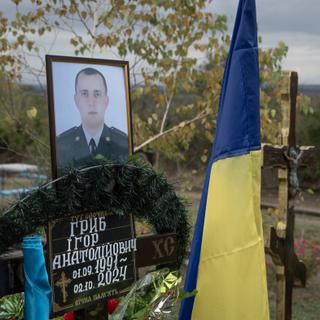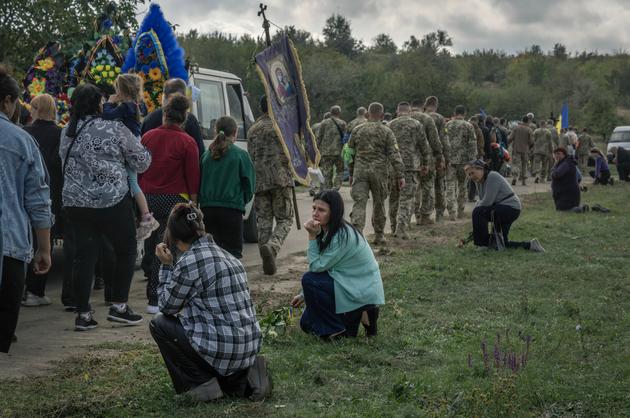


Ihor Hryb, the Ukrainian officer who chose suicide over orders to save his men: 'Everyone was going to die'
FeatureLieutenant-Colonel Ihor Hryb, commander of the 186th battalion deployed in Donbas, chose to commit suicide rather than carry out orders that would have inevitably led to the death of his under-equipped and ill-prepared men against the Russian forces.
To save the lives of his men, he lost his own. It was October 2. Five days earlier, Lieutenant-Colonel Ihor Hryb and the soldiers of his battalion had received orders to leave the Kherson region in southern Ukraine for the Donbas region in the east of the country. "We had to hold a village at all costs, it was chaos," explained Ivan, a non-commissioned officer (NCO) of the 186th battalion, who spoke anonymously after returning from the mission. The soldiers had been deployed overnight to unfamiliar territory and the battalion was understaffed and very poorly equipped. "We only had machine guns, but no artillery or armor [to hold off the Russian advance]," continued the NCO. "Ihor knew what that meant, that everyone was going to die."
On October 2, according to Ivan and another NCO, the commander of the 186th battalion sent a last recommendation on a messaging loop: "Make your decisions, save people's lives." He disappeared the same day. News of his death, under circumstances that remain officially unclear, quickly spread among the soldiers, who eventually left their positions the following day. For many, there was no doubt: The commander had committed suicide after refusing to carry out orders.

Hryb joined the army at the start of the Donbas war in 2014. Twice decorated, he was married and had a young daughter. The 123rd Territorial Defense Brigade, which the 186th Battalion is part of, has announced the opening of an internal investigation into the circumstances of the death of a "soldier devoted to the military cause and to his country."
'Ihor is a hero'
On Saturday, October 5, a large number of soldiers from the 186th Battalion attended Hryb's funeral in his birthplace, Kryve Ozero, in the south of the country. By late morning, in front of his wife's house, where the door was left open, it seemed as though the whole crowd knew each other. Neighbors greeted each other with a nod or a handshake. Soldiers came and went, carrying flowers to pay tribute to the deceased, while others stood in the street, exchanging words and heartfelt hugs. A few wounded men, including amputees, passed in front of the crowd with blank expressions. "In Kryve Ozero [pre-war population 7,500], we lost 76 men," said Mykhaïlo, a pensioner who knew Hryb. "But look how many have been wounded..."

The procession eventually set off around midday, winding its way through streets of lush greenery to the center of the idle town, near a park where the faces of dozens of dead from the war are on display. Residents waited along the route to the cemetery, kneeling on the ground as the procession of hundreds passed by. Hryb was not the first soldier to be buried in Kryve Ozero. But this is the first time that a death has had such an effect on the town and the region.
You have 65.26% of this article left to read. The rest is for subscribers only.
